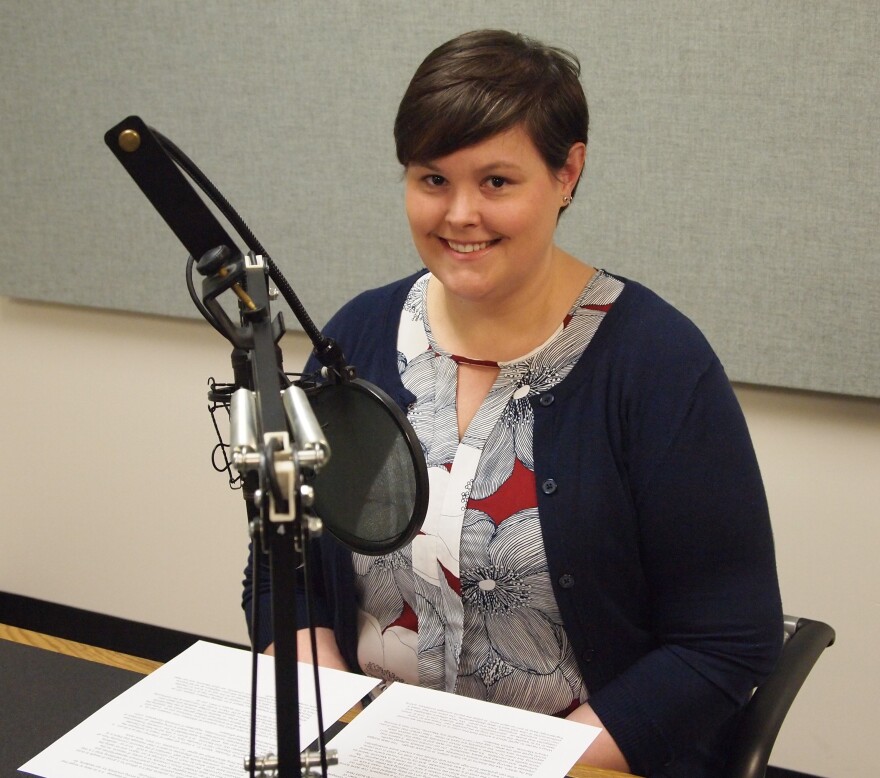I am fat. The first time I remember being told this was on the first day of third grade, when a friend I hadn't seen all summer said how chubby I looked in the back-to-school dress I had been so excited to wear.
Since then, I have been called fat more times than I can count, almost always alongside the implication that my body size means that I am less healthy, less hardworking and self-disciplined, less capable of success, and less worthy of friendship, affection, or love.
Like many fat people, I have spent a great deal of time and money trying not to be fat anymore, dieting regularly since elementary school. Some of these diets were what most might call sensible, and others would be more accurately described as disordered eating, like the months in college I spent eating only broccoli with rice once daily. Each time, as my weight dropped, the approval I received almost made the constant vigilance and obsessive focus on food worth it. But each time, as I lowered my guard and widened my focus to pursuits that actually gave me joy, my weight inevitably crept back up and the faces of those who had praised me now registered only disappointment. I knew what they were thinking, because I was thinking it, too.
The insistence that fat equals bad is purportedly for fat people’s health, for our own good, but over time I have come to doubt this. Neither the shame and self-loathing associated with being fat in our society nor the obsessive mindset that weight loss required has ever felt mentally healthy.
We don’t—nor should we—stigmatize thin people who spend ninety percent of their free time on the couch or who live on a steady diet of potato chips and soda, just fat people who we think look like they do. And how is convincing fat people that their bodies are shameful and disgusting supposed to make them take loving care of those bodies?
Research on body weight and health also suggests that the story may be more complicated. The vast majority of people who lose weight gain it, and often more, back. The resulting weight cycling is linked with conditions that have been attributed to obesity, such as heart disease and high blood pressure.
Finally, many of the health benefits associated with weight loss have actually been shown to correlate with behaviors used to lose weight, such as regular exercise, even when weight loss is not the result of those behaviors.
I could go on, but it’s really not necessary, because whether you wholeheartedly believe in or have begun to question the conventional scientific wisdom about body weight, the fact is that science cannot possibly tell us what we ought to prioritize, how we ought to treat each other, or who is to be valued and why.
Whether or not being fat increases the risk of disease or death and whether or not it is actually possible for fat people to become thin, no one deserves to be stigmatized and belittled. The embodied experience of being fat isn’t one of suffering, or at least it hasn’t been for me. What decreases the quality of life for fat people most isn’t the fat itself, it’s living in a society that is designed to fully accommodate only thin bodies, that assumes that body size is an indicator of worth, and that labels fat bodies as defective or pathological.
The way our society treats fat people is a social justice issue, one that affects all of us, not just those of us who are fat. Research shows that by the time they are three years old, children stigmatize their fat peers. No wonder, then, that more than half of 6- to 8-year-old girls rate their ideal bodies as significantly thinner than their actual bodies or that 75% of American women engage in disordered eating behaviors.
How many people limit themselves because they are afraid of becoming fat or afraid that some part of them is fat or because their bodies don’t measure up to an unattainable ideal of perfection? To whose benefit is it to appraise individuals’—especially women’s—value based so heavily on their external appearances, to be able to reduce someone to nothing just by calling her fat? What might a world look like in which all body types were accepted, and people of all different sizes and shapes and skin colors and abilities and gender expressions were more likely to be perceived, by themselves and others, as beautiful, as perfect merely for the miracle that they are alive?
All people, regardless of body size or, yes, even health status, deserve to love and appreciate their bodies, no matter what those bodies look like. All people deserve to have access to nourishing food and to have the opportunity to move their bodies for recreation and physical pleasure. All people deserve to exist in the world in the bodies that they have without fear of insult and mockery. All people deserve to be judged for who they are, not for what they look like.
I have almost always been fat and, if the statistics are right, I will probably always be fat. I am fat and I am a teacher, a scholar, a mother, and a wife. I am fat and I am self-disciplined, hardworking, successful, and worthy of love. I am fat and I have stopped living my life as a “before” picture waiting to happen. I am fat and I refuse to waste one more second of my precious life hating my body or one more dollar trying to manipulate its size. I am fat, and I am no longer apologetic; instead, I choose to thrive.
Erin Taylor is an Associate Professor of Political Science at Western Illinois University.
The opinions expressed are not necessarily those of the University or Tri States Public Radio. Diverse viewpoints are welcome and encouraged.



